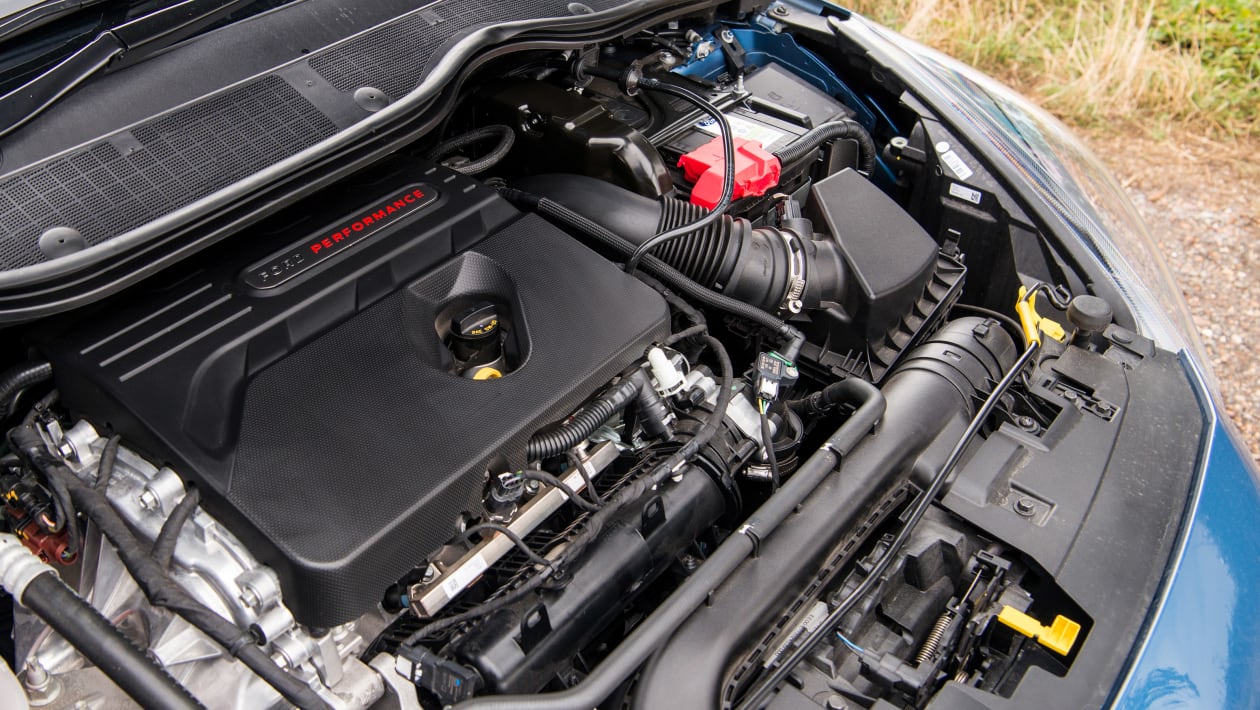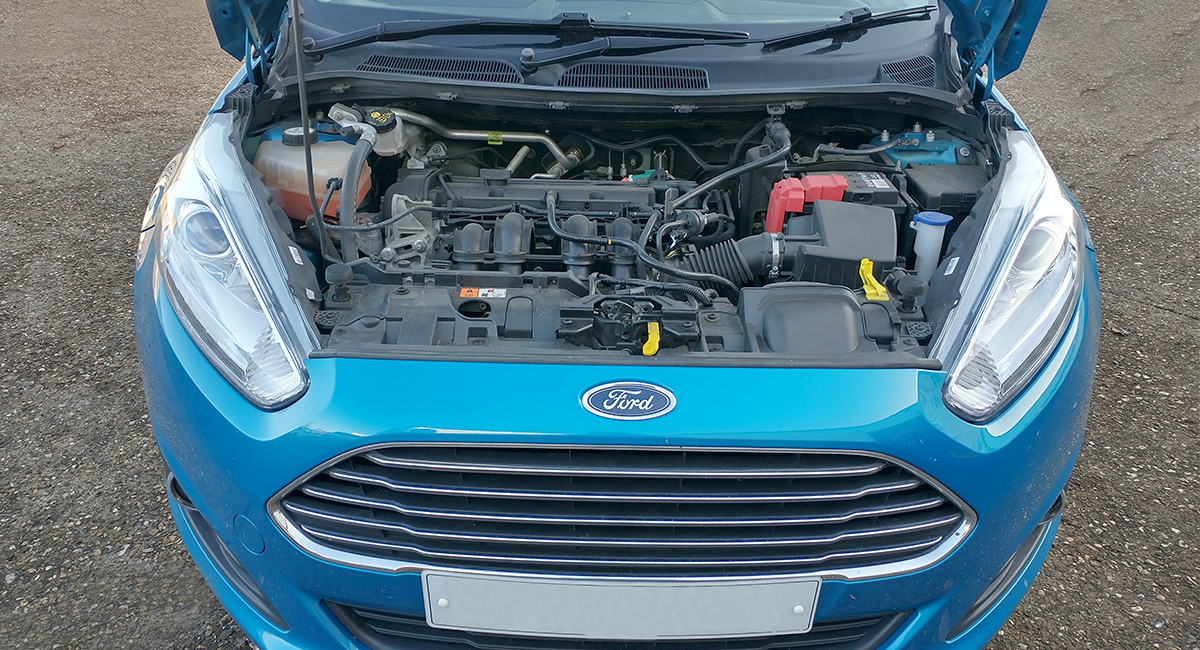How to Diagnose Ford Fiesta Engine Issues and Prevent Future Problems
Wiki Article
The Future of Engines: Advancements Driving Sustainable Power Solutions
As the automotive market browses the necessary change towards sustainability, the future of engines is significantly defined by groundbreaking technologies. Electric engine developments, along with appealing developments in hydrogen fuel cells and biofuels, are improving the landscape of power services. The emergence of crossbreed systems better complicates this development, providing both challenges and opportunities to lower exhausts efficiently. Combined with the assimilation of synthetic knowledge in engine layout, these technical strides increase important questions concerning their long-lasting feasibility and effect on traditional paradigms. What might this indicate for the market and customers alike?Electric Engine Developments
The evolution of electrical engine advancements represents a critical shift in the aerospace and auto industries, driven by the urgent requirement for lasting choices to fossil fuels. This change is characterized by significant advancements in battery technology, power electronics, and electrical motor design, which collectively enhance the performance and efficiency of electrical engines.Recent advancements have resulted in the production of lighter, more energy-dense batteries, such as lithium-silicon and solid-state batteries, which assure longer varieties and shorter billing times. In addition, improvements in electric motor effectiveness, such as making use of irreversible magnets and advanced cooling systems, make it possible for electric engines to run efficiently under varying conditions. These enhancements not just enhance car performance yet likewise add to a decrease in general power consumption.
Moreover, the combination of innovative software algorithms has maximized energy administration in electrical vehicles, enabling regenerative stopping and anticipating billing strategies. As manufacturers significantly welcome electrical propulsion, the aerospace and auto markets are experiencing a paradigm change towards greener technologies. This development not just satisfies regulative demands but likewise straightens with consumer choices for ecologically pleasant transport services, strengthening electrical engines as a cornerstone of future sustainable flexibility.
Developments in Biofuels
As the automotive and aerospace industries significantly prioritize sustainable energy resources, innovations in biofuels emerge as a corresponding option to electric engines. Biofuels, stemmed from organic materials such as plants, waste, and algae, provide an innovative opportunity for minimizing greenhouse gas emissions and dependence on nonrenewable fuel sources.Recent study has actually focused on boosting the effectiveness and sustainability of biofuel manufacturing. Second-generation biofuels utilize non-food feedstocks, reducing competitors with food supply and minimizing environmental effect. Developments in artificial biology have enabled the design of microbes to create biofuels a lot more successfully, leading to higher returns and lower manufacturing prices.
Furthermore, the advancement of drop-in biofuels enables smooth integration right into existing facilities, allowing a smoother change for sectors generally dependent on fossil gas. ford fiesta engine. These gas can be used in current engines without modifications, facilitating their fostering across numerous industries
Investments in biofuel modern technology, along with supportive plans, are vital to drive advancement and scalability. As the international neighborhood seeks to combat climate modification, biofuels use a pragmatic, prompt option that straightens with the overarching goal of sustainability in transportation and aviation.
Hydrogen Gas Cell Modern Technology
An expanding number of researchers and companies are discovering hydrogen gas cell technology as a sensible option to standard source of power in transportation and power systems. This modern technology converts chemical energy from hydrogen right into electrical energy through an electrochemical response, with water as the only result, making it an ecologically friendly choice.The core of hydrogen gas cells is the fuel cell stack, where hydrogen molecules are divided into protons and electrons. The circulation of electrons produces power, while protons move with a membrane to integrate with oxygen from the air, forming water. This have a peek here procedure leads to high effectiveness and low emissions, positioning hydrogen gas cells as an important player in the transition to sustainable energy.
Considerable advancements have actually been made in boosting the toughness and performance of gas cells, together with minimizing costs with ingenious manufacturing methods. The development of hydrogen production techniques, such as electrolysis powered by renewable energy resources, improves the sustainability of the general system. As framework for hydrogen refueling expands and manufacturing approaches come to be a lot more reliable, hydrogen gas cell innovation holds fantastic promise for decarbonizing various industries, including durable transport and stationary power generation.
Crossbreed Equipments and Their Influence
Hybrid systems stand for a substantial evolution in lasting engine innovation, merging typical inner burning engines with electric propulsion to enhance power effectiveness and decrease emissions (ford fiesta engine). This twin technique permits cars to utilize both power resources, allowing better versatility in energy consumption and reducing dependence on nonrenewable fuel sources

In enhancement to environmental advantages, hybrid systems use consumers a feasible shift towards totally electrical vehicles. They alleviate array anxiousness by incorporating the comfort of fuel with the advantages of electrical propulsion, making them an appealing alternative for a broader audience.
The Duty of AI in Engine Design
Leveraging sophisticated formulas and machine understanding methods, the auto industry is significantly incorporating synthetic intelligence (AI) into engine layout procedures. AI enhances the effectiveness and performance of design by evaluating substantial datasets to identify optimal arrangements and performance parameters. This capability allows designers to imitate various operating conditions and predict engine habits under multiple scenarios, significantly decreasing the time and cost connected with conventional prototyping techniques.Moreover, AI assists in the advancement of innovative products and burning procedures customized for sustainability. By enhancing fuel effectiveness view website and reducing emissions, AI-driven designs straighten with international campaigns intended at minimizing the carbon footprint of vehicle engines. Device understanding algorithms can additionally forecast maintenance requirements, resulting in improved integrity and durability of engine elements.
Furthermore, AI is important in the assimilation of electrification technologies, such as crossbreed systems, where it can enhance battery administration and power recuperation procedures. As the market moves in the direction of even more sustainable power solutions, the role of AI in engine style becomes significantly crucial, driving development and improving the efficiency of future engines. Eventually, the collaboration in between AI and engine design proclaims a brand-new period of smarter, cleaner, and a lot more effective automotive modern technologies.

Final Thought
In verdict, the future of engines is being shaped by a merging of innovative technologies that focus on sustainability. Electric engine improvements, biofuel developments, hydrogen fuel cells, and hybrid systems jointly add to a substantial reduction in discharges and ecological effect.Electric engine innovations, together with appealing advancements in hydrogen fuel cells and biofuels, are reshaping the landscape of power remedies. Furthermore, enhancements in electrical motor performance, such as the usage of permanent magnets and progressed cooling down systems, make it possible for electrical engines to run efficiently under varying conditions. By enhancing fuel effectiveness and lessening emissions, AI-driven designs straighten with global initiatives aimed at visite site lowering the carbon impact of automotive engines. As the market moves towards more lasting power services, the function of AI in engine design becomes significantly essential, driving development and improving the efficiency of future engines. Electric engine innovations, biofuel developments, hydrogen gas cells, and hybrid systems jointly add to a significant reduction in discharges and ecological influence.
Report this wiki page